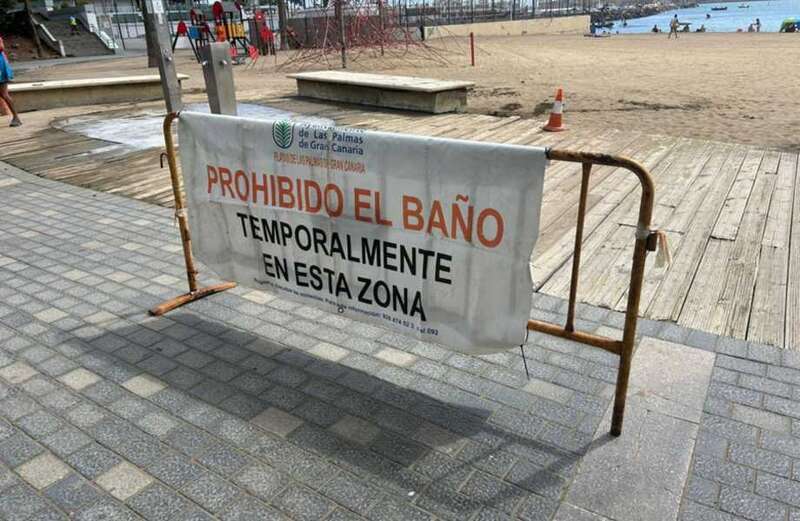BRITS heading to a popular Spanish island will be turned away from a top beach after faecal bacteria contaminated the water.
Local authorities raised the red flag on a Gran Canaria beach after they found disturbing quantities of enterococcus bacteria, which poses a health risk to beachgoers.


The Las Palmas de Gran Canaria City Council today banned swimming on Las Alcaravaneras beach until August 31 after discovering an abnormal increase in the dangerous bacteria.
During a weekly analysis of the city's beaches, they discovered "short-term contamination" of the intestinal enterococci that exceeded the recommended safe limit.
The authorities are waiting on results of a water sample before they can deem the tourist beach safe once again next week.
 Lucas Perez pays part of own transfer fee to rejoin beloved Deportivo
Lucas Perez pays part of own transfer fee to rejoin beloved Deportivo
Enterococcus bacteria found in the water indicates that there is faecal material floating around which can lead to nasty health issues.
It can lead to fevers, headaches, vomiting, rashes and other unpleasant symptoms.
This can be caused by sewage spills and failing wastewater infrastructure particularly in the aftermath of storms which, in turn, contaminates local waterways and eventually the ocean.
In urban areas, faecal water contamination is often traced back to private septic systems.
The unappealing incident follows the closure of another popular Spanish beach last month - Ibiza's Playa Es Pinet.
The amount of unsavoury material in the beach's surrounding sea "exceeded" approved safety levels.
According to the local Department of the Environment, the contaminated coastline even posed a risk of E. Coli as well as intestinal enterococcus bacteria.
In the US, a shocking study in June exposed how popular swimming beaches in Malibu, Miami and Hawaii were riddled with disturbing quantities of enterococcus bacteria.
A study by the Surfrider Foundation, an ocean protection organisation, found unsafe levels of faecal bacteria in 19 per cent of their 9,000 samples taken across the states last year.
Sixty-one per cent of the 496 sites tested had at least one sample that exceeded the recreational water health standard.
 What is Balenciaga and how do you pronounce it?
What is Balenciaga and how do you pronounce it?
These include popular holiday hotspots on both the East and West Coast as well as paradise island in Hawaii.


































